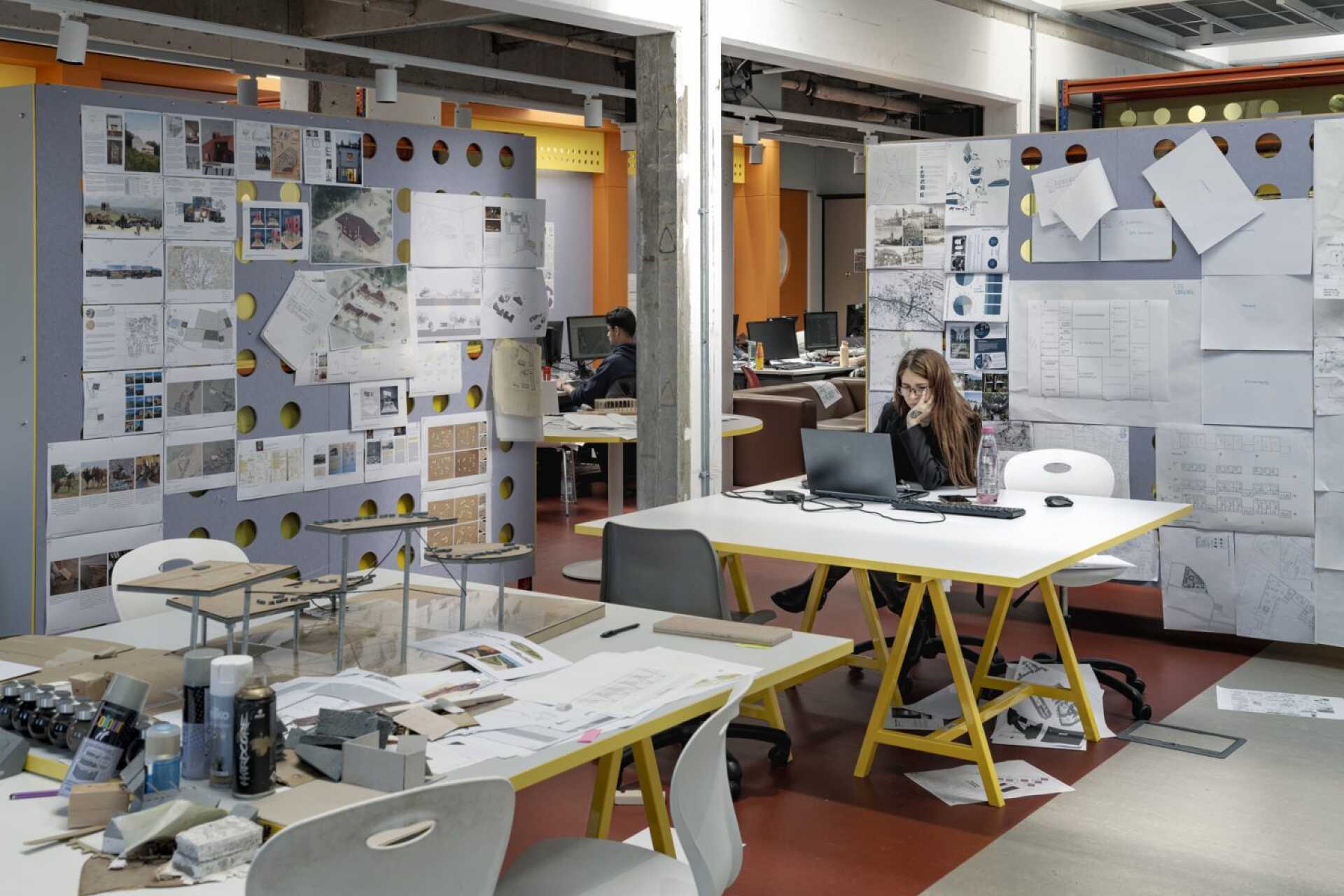What can I do with a degree in Spatial and Interior Design?

A degree in Spatial and Interior Design from the University of Kent equips you with the creative, technical, and analytical skills to transform spaces into functional and aesthetically pleasing environments. You'll be prepared for a variety of roles within the design industry and beyond. Get ideas and inspiration here before booking a one-to-one appointment with a Careers Adviser.
Careers in Spatial and Interior Design
The following roles are examples of job opportunities available to graduates of Spatial and Interior Design. These roles utilise your abilities in spatial planning, creativity, and client collaboration.
Interior and Spatial Designer - Design and plan internal spaces in a wide range of domestic and commercial settings, considering the functionality, safety, and aesthetics.
Exhibition Designer - Create engaging displays and exhibitions for public exhibitions including museums, galleries, and trade shows.
Production Designer (Theatre/TV/Film) - Design sets and environments for productions, working closely with Directors and Producers.
Visual Merchandiser - Developing creative retail layouts and displays to enhance customer experience and drive sales.
Architectural Technologist - Apply technical knowledge to create building designs and construction, ensuring functionality and compliance from inception to completion.
Furniture Designer - Design and create furniture pieces, balancing form, function, and manufacturing processes.
Alternative career paths
Graphic Designer - Developing visual content for print and digital media including branding, brochures, packaging, and websites.
Product Designer - Creating and developing new products or improving everyday items, focusing on usability, aesthetics, and marketability.
Production/Set Designer (theatre, TV, film) - Identify and design physical sets, locations, graphics and surroundings for theatre, film, and television productions.
Lighting Technician - Plan and implement lighting schemes for various environments, enhancing mood and functionality.
Where do University of Kent graduates work?
This is a selection of organisations that have employed University of Kent graduates in the past. There are many more possible employers in these and other industries.
- Architectural firms: Foster & Partners and EPR Architects
- Retail and commercial companies: Coty, Kelly Hoppen Interiors, Wagstaff Interiors Group and Ikea
- Construction: RSK Consultancy, Apex Contractors
- Self-employment: Starting independent practices or freelance careers.
The University of Kent's emphasis on practical experience, including opportunities like the end-of-year show, allows students to showcase their work to industry professionals, enhancing employment prospects.

Find a job
The Careers and Employability Service provides information and advice on job searching to University of Kent students and recent graduates. This includes Uni Kent Careers Hub, advertising a range of graduate jobs, placement year and vacation work/internships.
Spatial and Interior Design recruitment platforms
British Institute of Interior Design (BIID)
Design Week Jobs (Creative and design roles)
Dezeen Jobs (Architecture and design roles)
The Dots (UK) (Creative industry networking and job listings)
Careers in Design (Recruitment specialist for design-related careers)
Useful resources
Design Council - An independent UK charity that supports inclusive and sustainable design across a variety of sectors.
Society of British and International Interior Design (SBID) - Professional accreditation and networking.
Creative Boom - Articles, job boards, portfolio advice, and inspiration for creatives.
ArchiPro - A platform that connects designers with furniture, materials, and inspiration.
Tips to stand out
Portfolio creation: Develop a strong online portfolio showcasing your understanding of typography, colour theory, branding, and accessibility on platforms like Behance or a personal website. Add this to your CV/LinkedIn profile.
Gain real-world experience: Add a Year in Industry to your degree, or gain experience through internships, student productions, or freelance projects to develop workplace and technical skills.
Network: Use LinkedIn and Kent’s Career Mentoring scheme to build connections with alumni and professionals to gain insights into your target roles and industries. Further network and collaborate via platforms like The Dots and Creative Lives in Progress or LinkedIn groups.
Build commercial awareness: Stay updated with trends in interiors and design and software development through newsletters, podcasts and following industry leaders and influencers. Engage with industry bodies such as the British Institute for Interior Design and The Society of British and International Interior Design.
Consider further study: Pursue postgraduate qualifications to specialise or enhance your expertise.
Competitions: Take part in student design competitions.

Year in industry
A year in industry can have a big impact on your employability. By gaining real-world experience and learning key skills in the workplace, and pairing these with the knowledge you gain on your degree, you can become a highly employable candidate in the labour market. The year can be based in the UK or abroad, including your home country if you're an international student, and contribute to your final degree. At The University of Kent, many courses include an optional year in industry between your second and final year, where you undertake graduate-level work related to your studies.
Further study
Some graduates choose to pursue postgraduate studies to specialise further or explore new areas. There are also free and low cost online courses that may be useful such as: